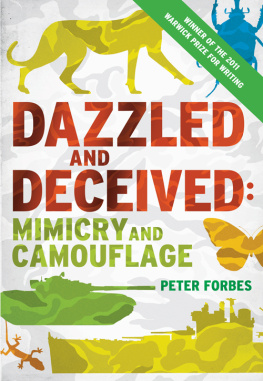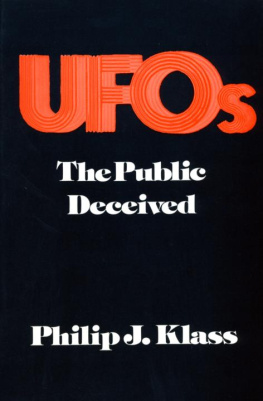Gregg A. Ten Elshof - I Told Me So: Self-Deception and the Christian Life
Here you can read online Gregg A. Ten Elshof - I Told Me So: Self-Deception and the Christian Life full text of the book (entire story) in english for free. Download pdf and epub, get meaning, cover and reviews about this ebook. year: 2009, publisher: Eerdmans, genre: Religion. Description of the work, (preface) as well as reviews are available. Best literature library LitArk.com created for fans of good reading and offers a wide selection of genres:
Romance novel
Science fiction
Adventure
Detective
Science
History
Home and family
Prose
Art
Politics
Computer
Non-fiction
Religion
Business
Children
Humor
Choose a favorite category and find really read worthwhile books. Enjoy immersion in the world of imagination, feel the emotions of the characters or learn something new for yourself, make an fascinating discovery.
- Book:I Told Me So: Self-Deception and the Christian Life
- Author:
- Publisher:Eerdmans
- Genre:
- Year:2009
- Rating:3 / 5
- Favourites:Add to favourites
- Your mark:
- 60
- 1
- 2
- 3
- 4
- 5
I Told Me So: Self-Deception and the Christian Life: summary, description and annotation
We offer to read an annotation, description, summary or preface (depends on what the author of the book "I Told Me So: Self-Deception and the Christian Life" wrote himself). If you haven't found the necessary information about the book — write in the comments, we will try to find it.
I Told Me So: Self-Deception and the Christian Life — read online for free the complete book (whole text) full work
Below is the text of the book, divided by pages. System saving the place of the last page read, allows you to conveniently read the book "I Told Me So: Self-Deception and the Christian Life" online for free, without having to search again every time where you left off. Put a bookmark, and you can go to the page where you finished reading at any time.
Font size:
Interval:
Bookmark:
i told me so
Self-Deception and
the Christian Life
Gregg A. Ten Elshof
William B. Eerdmans Publishing Company
Grand Rapids, Michigan / Cambridge, U.K.
Copyright
2009 Gregg A. Ten Elshof
All rights reserved
Published 2009 by
Wm. B. Eerdmans Publishing Co.
2140 Oak Industrial Drive n . e ., Grand Rapids, Michigan 49505 /
p . o . Box 163, Cambridge cb3 9pu U.K.
www.eerdmans.com
Library of Congress Cataloging-in-Publication Data
Ten Elshof, Gregg, b. 1970
I told me so : self-deception and the Christian life / Gregg A. Ten Elshof.
p. cm.
ePub isbn 978-1-4674-3970-1
Kindle isbn 978-1-4674-1679-5
isbn 978-0-8028-6411-6 (pbk. : alk. paper)
1. Self-deception Religious aspects Christianity.
2. Christian life. I. Title
bv 4267. f t 46 2009
' .673 dc22
2009012686
Scripture quotations are from the New Revised Standard Version Bible, copyright 1989, Division of Christian Education of the National Council of the Churches of Christ in the United States of America. Used by permission. All rights reserved.
Contents
To Thursday
(even when it falls on a Wednesday)
A mother somehow manages not to notice the obvious signs that her son is on drugs. A wife does the same with respect to her husbands affair. All of the evidence is easily available. Yet it goes unseen. The young man puts out of mind the horrors of the sex-slave industry driving the pornography business and convinces himself that these women actually enjoy their work. The politician convinces himself that his lofty ends justify morally ambiguous means (or worse). The director of a Christian non-profit organization manages to find sincerely compelling a perspective from which money donated to the ministry can legitimately be used to pay for an extravagant personal vacation or, perhaps, a private jet.
This book is about self-deception. Its about the amazing human capacity to break free from the constraints of rationality when truth ceases to be the primary goal of inquiry. Beginning with the Scriptures themselves, self-deception looms large in the historical attempt to explain and describe Christian experience. But there is precious little in contemporary Christian writing by way of sustained focus on the role of self-deception in the Christian life. This book intends to fill that void.
More accurately, this book intends to put something in the void. To fill the void is too ambitious a task. I dont say anything close to everything that can and should be said about self-deception. But I hope I say enough to enable you to entertain seriously the possibility that, for better or worse, self-deception is a part of your life. You can either pretend its not there which is to add yet another layer of it or you can turn and consider it explicitly. The aim of this book is to help you begin to do the latter.
Chapter one introduces self-deception and explains why otherwise sane, rational, and good people engage in self-deception. The chapter also explains the disappearance of self-deception from the contemporary discussion of Christian living in terms of the recent emphasis on the virtue of authenticity. Chapter two explains in more detail what self-deception is. It explores the relationship between interpersonal deception and self-deception and suggests that we are self-deceived whenever we manage our own beliefs for the sake of some goal other than the truth. Chapters three and four introduce five of the main strategies for successfully deceiving yourself. For each strategy, there is a general description and explanation followed by an exploration of what I hope are recognizable manifestations of the strategy in the Christian life in particular.
Chapter five explores the social aspect of self-deception. Often we work as a team to keep each other in the dark. Once again, a general description of the phenomenon of groupthink is followed by an exploration of how it shows up in Christian culture. Chapters six and seven explain how to move progressively away from vicious self-deception. Surprisingly, an important step in moving away from vicious self-deception is the realization that self-deception is not always such a bad idea that it can serve legitimate purposes. After explaining the positive contribution of self-deception and the mechanisms that give rise to it, three pieces of advice are offered for moving progressively away from the kinds of self-deception that do us harm. Finally, chapter eight warns against postures that can be the result of having thought about self-deception. This topic, like many others, is a dangerous one. An exploration of self-deception can too easily result in cynicism, self-doubt, or a vicious sort of hyper-authenticity. Chapter eight is intended to forestall these errors.
To whom can you safely dedicate a book on self-deception? I suppose the last thing anybody wants is to be mentioned in a book of this sort much less to be the object of its dedication. Ive had great fun in recent months telling friends and family that Im writing a book on self-deception and that theyre in it. In fact, Ill sometimes add, Ive considered dedicating the book to you and using your name as the subtitle. Nobody seems particularly flattered, honored, or excited about that possibility. For a time, I thought of dedicating the book to myself. Im most familiar with my own self-deceptive strategies, after all, and this would spare everyone else the embarrassment. But then who am I to say that Im most familiar with my own self-deceptive strategies. Maybe Im not. Maybe Im self-deceived in the belief that I am. I cant confidently dedicate the book even to me. So Ive decided to dedicate the book to a day of the week. More on that shortly.
First, though, heartfelt thanks are in order. Thanks to those whove read early drafts of the book in whole or part and have been willing to spend their time in conversation with me about it: Paul Buchanan, Don Carr, David Ciocchi, Tom Crisp, Roger Freet, Andy McGuire, Brad Monsma, Steve Porter, Dave Rhode, Paul Spears, Gene and Judy Ten Elshof, Laurel Ten Elshof, and Dallas Willard. Special thanks to David Bratt for the patience it takes, no doubt, to edit the work of a philosopher, and for rescuing the book from itself. Thanks to Todd Picket and Jack Schwarz for working hard to find release time for me to make this project possible. Thanks to Roger Freet for guiding me patiently through unfamiliar waters. Thanks to my neighborhood community for embodying several of the ideals that find expression in this book. And thanks most of all to Laurel, Silas, Larkin, and Gideon for the life we share together. The energy to write and think feels like overflow from the life of joy and peace I have with you.
Finally, though, the book is dedicated to a day of the week: Thursday. For over fifteen years, God has used Thursday more than any other day to teach me about self-deception and to help me come to grips with my own self-deceptive strategies. On Thursdays, Ive learned by experience about diverse and safe community and Ive had the opportunity to practice Christ-likeness with others. On Thursdays, Ive learned that I am loveable even when Im known nearly all the way through. For better or worse, I would not be who I am today were it not for that day of the week. So, by extension, were it not for that day of the week, this book would never have been written.
I n his teachings Jesus Christ picked up on a note struck by the prophet Isaiah: This people honors me with their lips, but their heart is far away from me (Mark 7:6, Isaiah 29:13). The apostle Paul famously remarked upon the incongruity between what he wanted to do and what he actually did (Romans 7:15). Jeremiah stood in amazement before the deceitfulness of the human heart. He judged it to be desperately sick and inscrutable to the human mind. He as well as the Psalmist could only look to God to penetrate its murky depths (Jeremiah 17:9-10, Psalm 139:23-24). Current events easily suggest that not that much has changed since ancient days, and the tenor of the usual Christian landscape seems to match up pretty well with what Jesus and the prophets saw.
Next pageFont size:
Interval:
Bookmark:
Similar books «I Told Me So: Self-Deception and the Christian Life»
Look at similar books to I Told Me So: Self-Deception and the Christian Life. We have selected literature similar in name and meaning in the hope of providing readers with more options to find new, interesting, not yet read works.
Discussion, reviews of the book I Told Me So: Self-Deception and the Christian Life and just readers' own opinions. Leave your comments, write what you think about the work, its meaning or the main characters. Specify what exactly you liked and what you didn't like, and why you think so.










